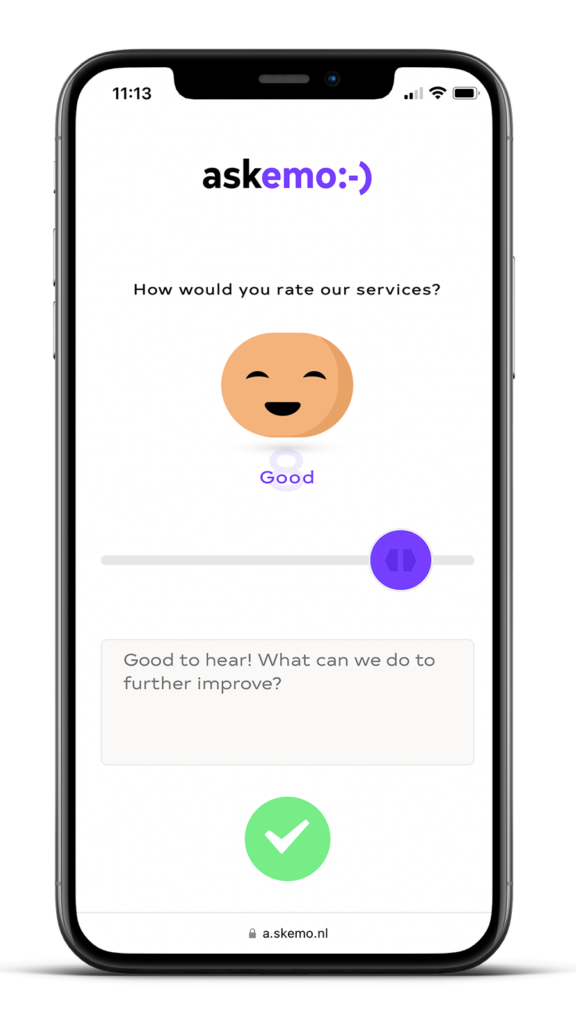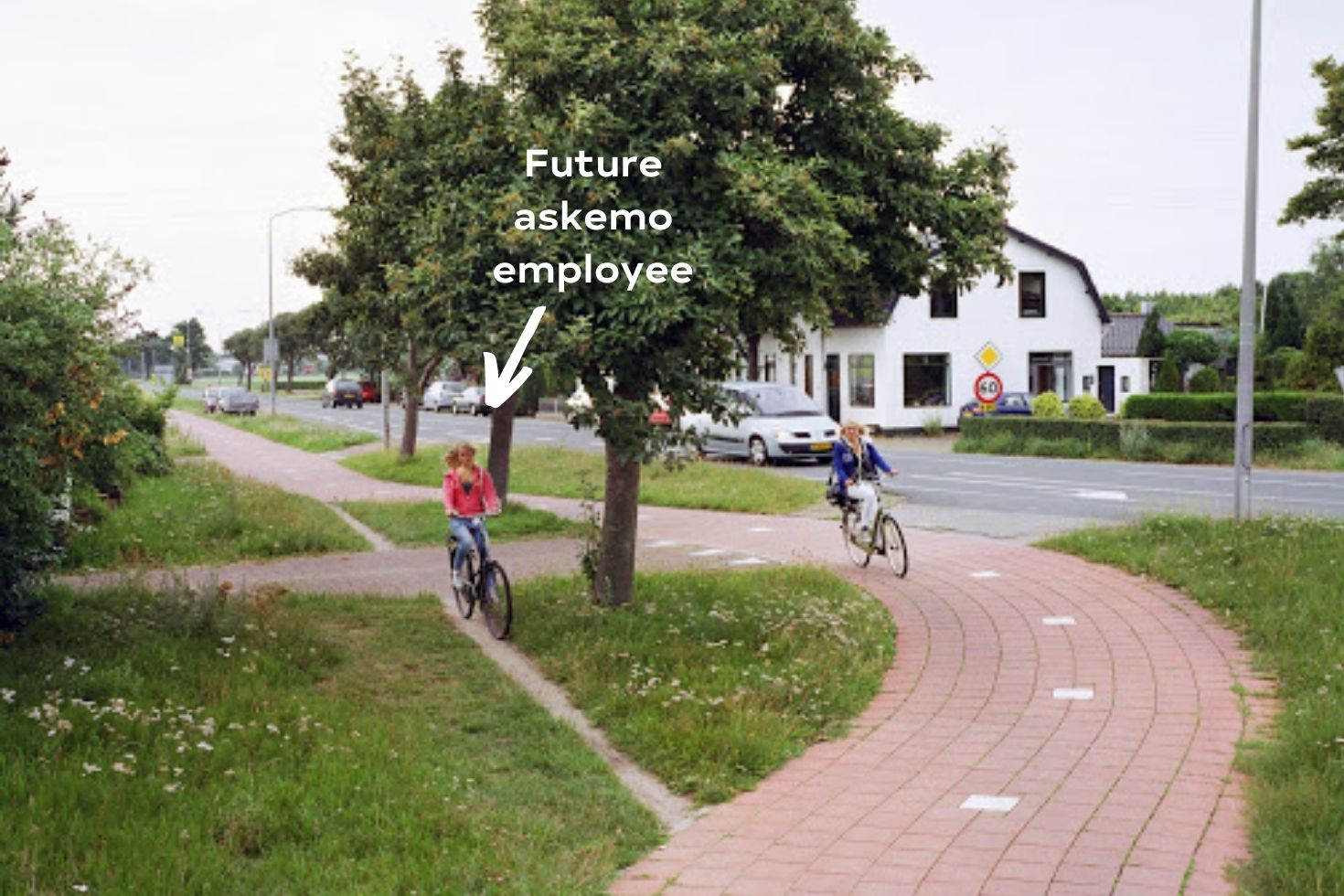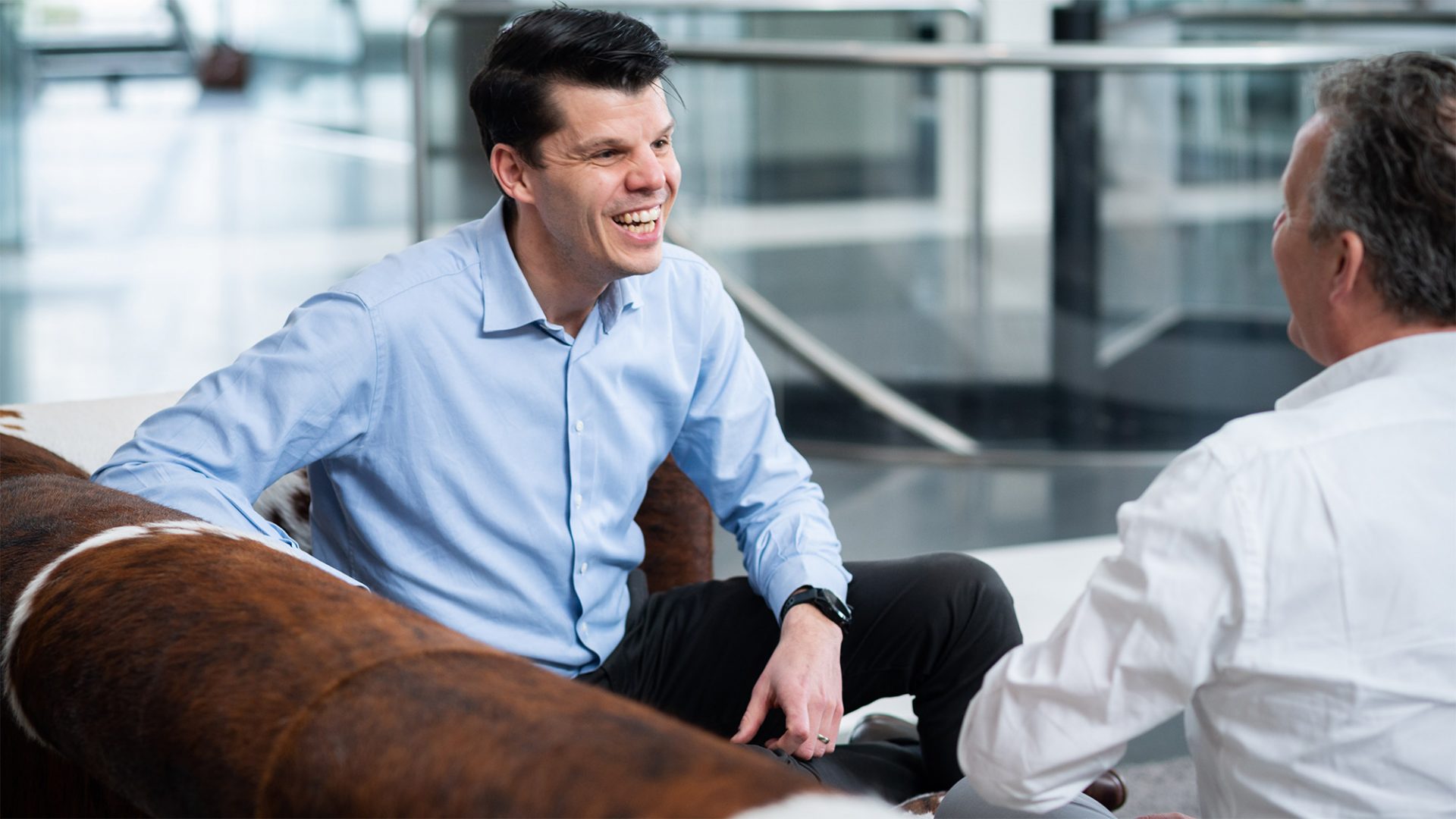About us
Ask questions? Or get answers?
Who needs boring, long surveys? That’s right: nobody. At best, you fill them in quickly and get on with your day. The sender gets too few completed returns and the data hardly provides reliable insights.
We speak from personal and business experience. Our roots are in IT. In projects to be precise. There, we saw many solutions to help measure progress. They focussed mainly on rational elements. On percentages, steps completed, milestones achieved and other KPI’s. But they all ignored the most important indicator for the success of projects: sentiment. The way employees and customers feel about the project.
Because when you let sentiments lie dormant, you can count on things to go wrong. But when you measure them, you can act and adjust in time. The result: satisfied people. And those are always the most productive employees and the most loyal customers.

The power of simplicity
We saw it happen regularly: small problems caused negative sentiments and latent irritations. They were easy to solve. But nobody noticed them. And so the problem grew. Frequently with unpleasant consequences for the project.
We wanted to make those sentiments measurable. That was our driving force in developing askemo. It helped us to create a user-friendly tool, which helps professionals to make visible what has long been invisible. Amongst clients, employees and other stakeholders.
Askemo avoids long surveys or complicated questionnaires. Its starting point is pure simplicity. Askemo is a paragon of user-friendliness, both in front- and back-end. The recipient answers just one question with 2 clicks. The sender gets a very accessible dashboard full of insights and data to act on immediately.

What can be improved? And how?
We are also constantly asking ourselves: “How are we doing? What could we improve?” As a result, askemo keeps evolving. Our number one priority is to improve collaborations. That’s why we keep talking to our clients and why we continuously look at the quality and user-friendliness of our tool.
And every now and then, we take some distance and time for relaxation. Because growth is in reflection.


